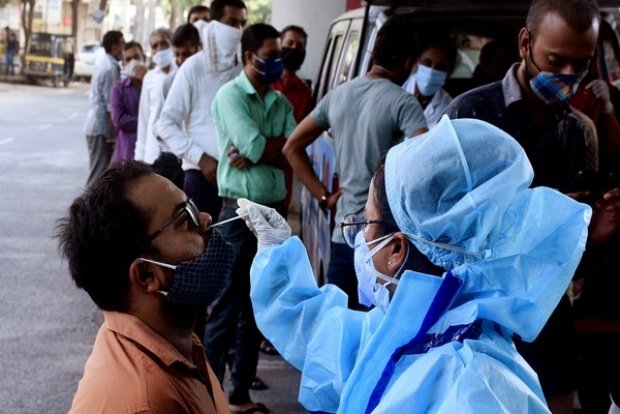According to a molecular study of the variant conducted by Indian SARS-CoV-2 Genomic Consortia in collaboration with researchers from UK found that the Indian variant B.1.617 can “modestly” avoid the neutralising antibodies produced after vaccination, but its two mutations do not have an additive impact on loss of sensitivity.
The variant is called “double mutant” because of it the mutations, E484Q and L452R. However, the immune dodging of the “double mutant” variant is less than variants with E484K that caused ten-fold reduction in neutralisation as compared to the variant that was in circulation last year according to the article uploaded on biorxiv but this is yet to be reviewed properly.
Dr. Anurag Agarwal, one of the authors of the paper and director of Institute of Genomics and Integrative Biology (IGIB) said, “What we found was a reduction in the ability of the antibodies to neutralise this variant, but they weren’t ineffective. There are infections reported in vaccinated individuals but all vaccines protect against severe disease.”
“Breakthroughs are being seen with both (all) vaccines though. In vast majority, disease is mild,” he added.
“The dominance of B.1.617 could be explained by prevalence of this lineage in community infection or simply reflect transmission between healthcare workers. The data nonetheless raise the possibility of a transmission advantage of B.1.617 in vaccinated individuals,” the article said.
However, it was also found by the researchers that the variants were more contagious in laboratory setting that was corroborated by the data of breakthrough infections, the infection after complete vaccination – from a Delhi hospital. It was also found that about 33 healthcare workers who got the infection, almost half were caused by B.1.617 variant.
In additional study it was found that the mutation P681R found on the spike protein of the virus that attaches with human receptors to infect a person which makes the virus more infective.
Dr Rajesh Pandey, senior scientist at IGIB said, “The P681R mutation increases the formation of syncytium (a single cell with several nuclei) makes the virus better equipped to enter the human cell, replicate for longer, and lead to a higher viral load. Basically, the viral cells fuse together, creating a larger space for the virus to replicate and making it difficult for the antibodies to destroy them. So, if 10 copies of the neutralising antibodies were needed to destroy the previous virus, the body may need to create 15 copies for this. This also means that the virus will stay in the body longer and transmit to others.”
With the key mutations of the Sars-CoV-2 and sera from people who had received the Pfizer/BioNTech vaccine according to the experiments conducted by the researchers using a pseudovirus.








